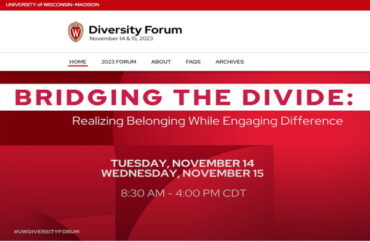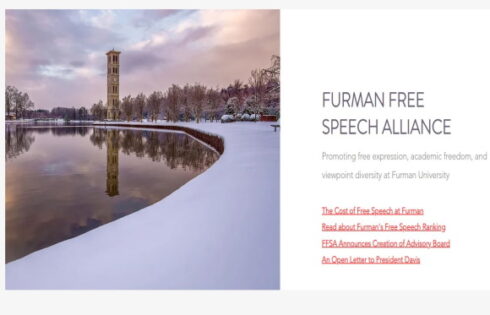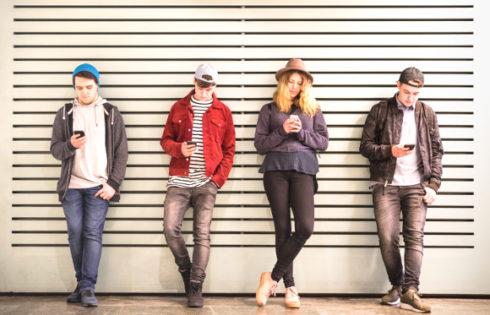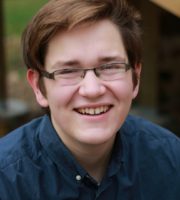
Another session discussed ‘Christian privilege’
MADISON, WISC. – A black woman said she was “triggered” by a panel this week at the University of Wisconsin-Madison’s “Diversity Forum” while several panelists at the “Bridging the Divide” conference said their suggestions can improve open debate on campus.
The Division of Diversity, Equity & Educational Achievement event has hosted the forum annually for over 20 years. The forum included speeches and breakout sessions on a range of DEI topics, including one on “LGBTQAI+ Affinity Group,” a keynote on immigration, and a speech titled “How to Be a Confident Pluralist.”
Despite the ongoing tensions at UW-Madison and other college campuses surrounding the deadly Hamas attacks on Israel and subsequent reactions, antisemitism was not on the agenda.
The College Fix attended one session called “The Discussion Project: Successful Discussion Requires Diversity, Equity and Inclusion.” It included a small-group discussion during which participants talked about the best way to handle a conflict in the classroom.
The hypothetical conflict included a white student saying “I was listening to this podcast that said that weight and diabetes is a big problem for Blacks. So why don’t Black people take better care of themselves?”
When the facilitators of the breakout session asked for the attendees’ response to the discussion of the scenario, one black female employee said she felt “triggered” by listening to the example.
The facilitators said previous attendees had similar reactions in the past to this scenario.
Another woman, a teacher, said she would want to give the student an “F” for the class.
The Fix asked Lynn Glueck, one of the facilitators of the breakout room, if she thought the discussion techniques taught about would also be applicable to encouraging conservative voices to speak in the classroom. Polls from UW universities showed large percentages of conservatives felt they couldn’t voice their opinions in the classroom.
“Yes. Through effective course design and discussion pedagogy, including planning and facilitation skills, this [encouraging all political opinions in discussions] is achievable and should be taking place in classrooms,” she told The Fix in person.
Another breakout session called “Understanding Our Privileges to Become Better Allies Presenters,” started off with a land acknowledgment that the Ho-Chunks lived on the land before it was used by UW-Madison.
Some of the topics the student presenters talked about were how to be an “ally” as it pertains to education, health care, religion, and politics. On religion specifically, they said that in the United States there is “Christian privilege” because people know some stories from the Bible and some Christian holidays are federal holidays.
The students brought up the example of Rosh Hashanah, the Jewish new year, which fell on Sep. 6-8 in 2021. Classes started on Sep. 7 that year at UW-Madison.
They used this to explain how non-Christian students sometimes have to choose between “celebrating their most holiest holiday, or attending classes.”
The panelists did not mention that in 2024, the first day of exams falls on May 5. The Orthodox Christian “Pascha,” or Easter, also falls on May 5. Sundays, when final exams typically began, is the normal day for Christians to attend church.
The session on “allyship” continued to talk about being an ally in politics and that through listening and compromising, there can be allyship across the political aisle. Lincoln Peckenpaugh, the student that presented the portion on politics, said that however, there could be no compromise on “human rights.”
One of the ways Peckenpaugh said that people could be allies to minorities in politics was through fighting what he called voter suppression. “There are instances of rapid misinformation including incorrect polling that we can see on national TV from both sides that might discourage voting,” Peckenpaugh gave as an example.
He did point out that there are already initiatives doing work to stop voter suppression at UW-Madison, “including systems like Rock the Vote and Hot Girls Vote which promote young people voting.”
Hundreds attended the main keynote speeches, though The Fix observed few students in attendance. Most attendees appeared to be administrators from UW campuses.
Harvard political scientist shares advice for supporting open debate and pluralism
Danielle Allen gave the first keynote on Tuesday. She is a professor of political philosophy, ethics, and public policy at the Harvard Graduate School of Education and spoke on the topic of “How to Be a Confident Pluralist.”
Professor Allen told The Fix that the idea behind the talk was that being a confident pluralist, “involves five steps: (1) Reflection; (2) Committing to nonviolence and the process of constitutional democracy; (3) Compromise; (4) Listening to hear; and (5) Putting human dignity front and center at all times.”
The Fix also asked about how her approach could be used given the current political climate on many college campuses surrounding the Israel-Hamas war. “On college campuses, we should commit to participating in a learning process about the current conflict,” she said.
This process should be “structured to support listening to hear and putting human dignity front and center.”
The Fix also asked Allen if being a confident pluralist included encouraging voices that disagree with the consensus view, such as conservative voices on college campuses.
“I’m always in favor of inviting people with a breadth of perspectives to any conversation. I typically seek to integrate conservatives into projects with progressives and liberals,” she said.
Allen’s father is William Allen, a retired conservative political scientist from Michigan State University.
The younger Allen received attention in 2016 ago for commenting on how she understood the rise of Hitler the Weimar Republic better as she saw Trump gain popularity before and after the 2016 presidential election.
“I’ve thought long and hard about this, and no, I don’t regret it,” she told The Fix via email when asked about her past views and what she believes now.
“It is a simple truth that by watching our politics in the past decade, I have come to understand the politics of Weimar Germany and the 1930s—a period in history that had always perplexed me,” she said. “I regret that conservatives take my view personally, but I believe it is my obligation to be honest about my view.”
She said she has also “learned a lot from conservatives over the past seven years of discussing Trump and appreciate what I have learned about frustrations they face, but I will also continue to be honest about what I see in the politics of our age and its principal figures.”
Poet José Olivarez delivered the Wednesday keynote and it primarily included him reading his poems.
MORE: UMich looks to advance DEI everywhere in next 5 years
IMAGE: University of Wisconsin-Madison
Like The College Fix on Facebook / Follow us on Twitter





Please join the conversation about our stories on Facebook, Twitter, Instagram, Reddit, MeWe, Rumble, Gab, Minds and Gettr.